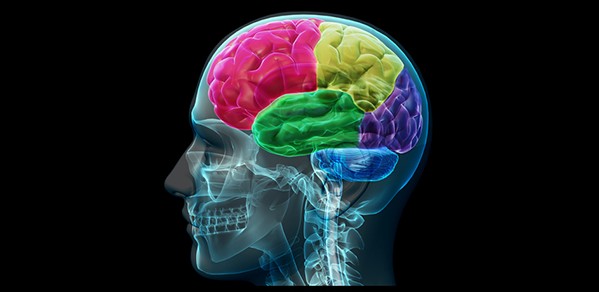
Cambridge neuroscientist Professor Daniel Wolpert will join a line-up of experts in celebration of ground-breaking research in brain science as part of a free public festival.
Cambridge is one of the major centres in the UK, if not the world, for studying how the brain works, and why in many cases it goes wrong, leading to disease. Cambridge BRAINFest is our chance to showcase the brilliant work that is taking place across the city.
Dr Dervila Glynn, organiser of Cambridge BRAINFest
Cambridge BRAINFest, which runs from June 23-25, will allow audiences to quiz more than 130 leading Cambridge neuroscientists on everything from dementia and dyslexia through to memory and mental health.
Professor Wolpert will be speaking on Saturday June 24 at 10.30am in St John’s Room, Cambridge Corn Exchange, on the topic ‘What is the brain for? A moving story’.
Professor Wolpert heads up the Department’s Computational and Biological Learning research group, which uses engineering approaches to understand the brain and to develop artificial learning systems.
“We’re all fascinated by the brain – its complexity is what makes us so unique as a species,” says Dr Dervila Glynn, co-ordinator of Cambridge Neuroscience, who is organising the event.
“Cambridge is one of the major centres in the UK, if not the world, for studying how the brain works, and why in many cases it goes wrong, leading to disease. Cambridge BRAINFest is our chance to showcase the brilliant work that is taking place across the city.”
Throughout the weekend, the Cambridge Corn Exchange will be transformed into an interactive tour of the brain, with themes including ‘Development’, ‘Brain & Body’, ‘Pain & Pleasure’, Perception & Imagination’ and ‘Learning & Forgetting’ spanning research from molecules to man. Visitors, adults and children alike, will get the opportunity to take part in experiments across 30 different interactive exhibits and even build their own brain.
A ‘Secret Cinema’ will show a series of films that illustrate how Cambridge researchers are tackling conditions such as dementia and OCD. Meanwhile, Café Scientifique – involving Professor Wolpert – will explore the breadth of brain science from body clocks and brain networks to the weird and wonderful world of the naked mole-rat.
For those wishing to take advantage of the sights around Cambridge, a historical self-guided ‘Neurotrail’ will lead explorers around the places, people and discoveries that have put our city at the heart of our understanding of the brain. Maps will be available at the Corn Exchange on the weekend. The foyer of the Corn Exchange will also be transformed by BRAINArt, an exhibition of brain-inspired art by local school children.
All events are free, but booking is recommended for the evening events at the Babbage Lecture Theatre. For further details, including how to book, click here.
Cambridge BRAINFest 2017 builds on the success of major public engagement events organised by the University of Cambridge, including the Cambridge Science Festival in spring and the Festival of Ideas in autumn.

